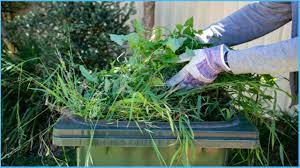COURTESY : www.wgh.co.uk
Green waste recycling plant
Green waste, also commonly referred to as garden waste, is any organic waste that is biodegradable and can be composted. Typically, it includes garden refuse such as grass cuttings, leaves, twigs, weeds and flowers.
Kitchen waste such as fruit and vegetable scraps, tea bags, coffee grounds and eggshells can also be included in your green waste. Non-compostable food waste like meat, fish bones, cooked food and dairy products have to be placed in the food waste bin.
Similarly, things like dried leaves, pine straw and hay are considered to be ‘brown waste’ because they’re rich in carbon, whereas green wastes contain high concentrations of nitrogen.

Image from veolia.co.uk
How is Green Waste Collected?
Around 94% of local councils now operate a green waste recycling scheme and provide households with food bins and green outside recycling bins, in which to store their green waste for collection.
An alternative method is to collect the waste yourself and arrange for a private green waste firm to collect your waste. WGH’s muck away service will pick up your green waste and take it to a dedicated green waste recycling centre.
What Happens to Green Waste?
Once collected, green waste is taken to a special composting site where it can be recycled. Any material that can’t be composted is removed. The remaining waste is shredded and then laid out in long piles (called windrows) to decompose.
The decomposition process is sped up by increasing the temperature up to 60°C to help the enzymes and bacteria work quickly and to kill off any plant diseases or harmful microbes. In addition, the windrows are turned frequently to provide oxygen to the microorganisms that decompose the waste.
Depending on how the final product is intended to be used, the entire recycling process can be completed in anywhere between 8 and 16 weeks.
Uses For Recycled Green Waste
Recycled green waste can be applied in a wide range of end uses, including agriculture, landscaping and biofuels. It’s most often used as a soil improver or topsoil constituent, but can also be used in sewage disposal and renewable energy.
MANUFACTURED TOPSOILS
Green waste provides nutrients for growing plants and contains woody components that don’t decompose quickly, making it an integral part of many manufactured topsoils.
When industrial wastes such as fly ash or coal dust are used in conjunction with green waste for topsoil, its water-holding capacity is increased.
SEWAGE DISPOSAL
Before reaching the composting site, green waste can be mixed with sewage wastes. This provides an environmentally sustainable method for sewage disposal that safely eliminates the risks posed by pathogens and pollutants contained in sewage wastes.
By co-composting green waste and sewage waste, the amount of sewage that gets incinerated and dumped each year is reduced. The resulting product can safely be used in agriculture.
RENEWABLE ENERGY
The recycling process of green waste is able to produce two products which can be used as biofuel. Biogas – the mixture of gases produced by the breakdown of organic matter in the absence of oxygen – is a renewable energy source that can be captured from biodegradable green waste.
Similarly, green waste that doesn’t contain any food waste can decompose to produce cellulosic ethanol. There is considerable interest in this biofuel because of its economic potential.
Benefits of Recycling Green Waste
Whenever anything is recycled, it doesn’t go to a landfill site which frees up valuable space. According to recent reports, UK landfills are already near capacity, so anything households and businesses can do to prevent using them unnecessarily is positive.
If green waste is sent to landfill it will decompose naturally which releases higher quantities of methane – a dangerous greenhouse gas – into the atmosphere. By recycling green waste, the decomposition process is carefully managed to reduce the levels of methane in the environment.
Finally, recycling our green waste creates additional products such as compost which can be used to improve soils and help farmers. The recycling process itself also creates biofuels – eventually, this will help to reduce our reliance on fossil fuels.





